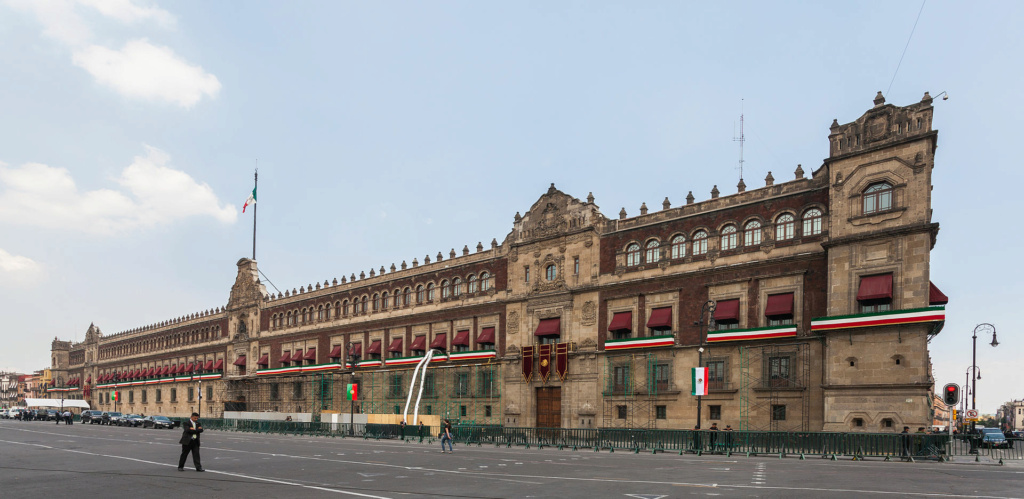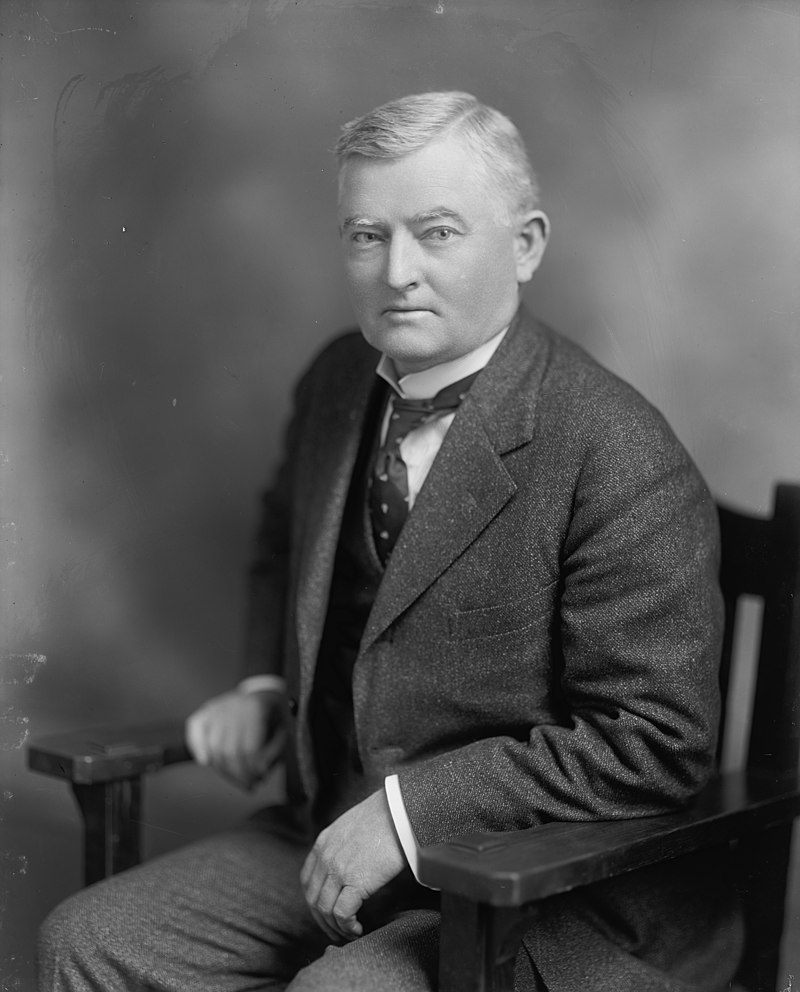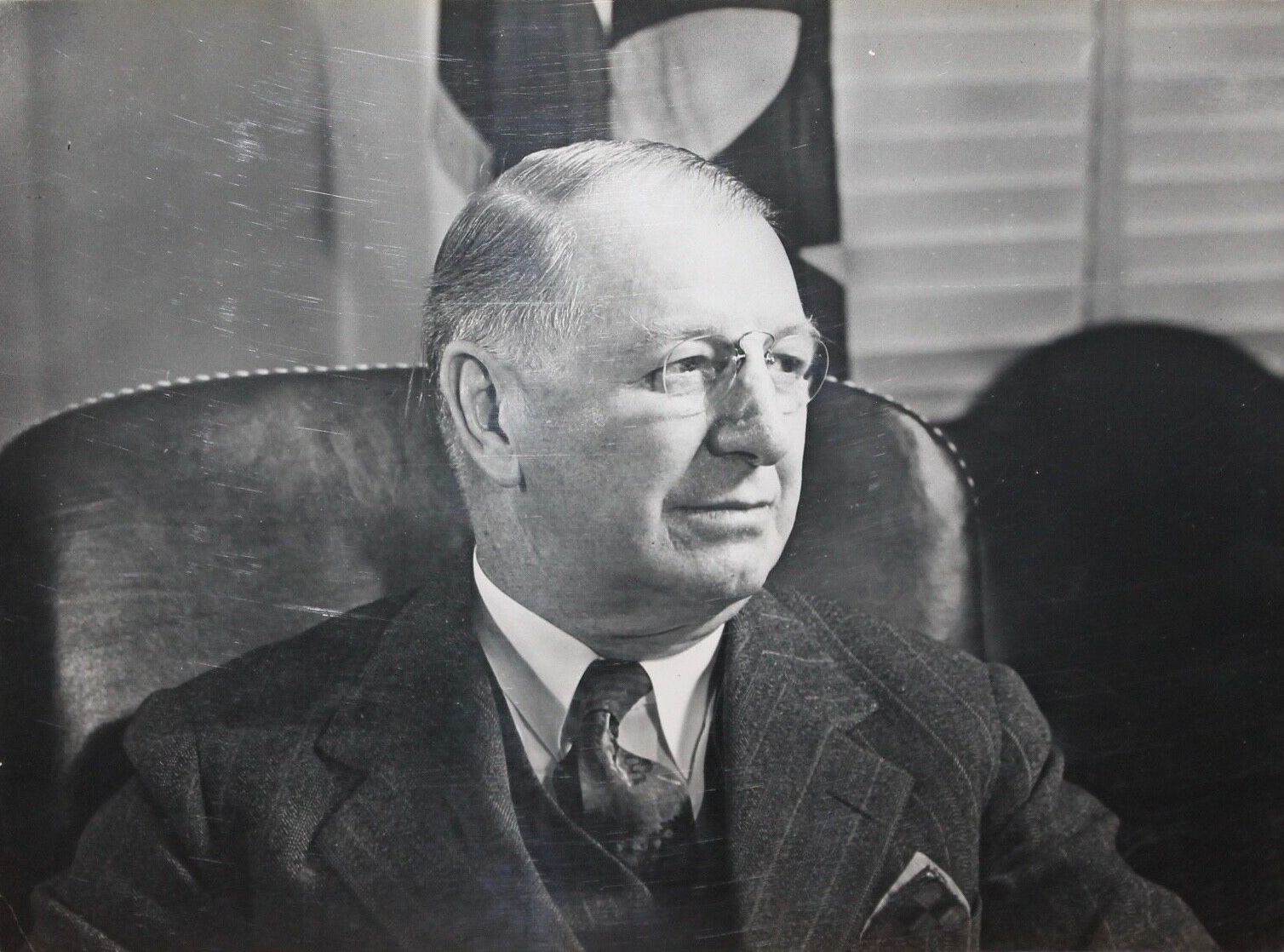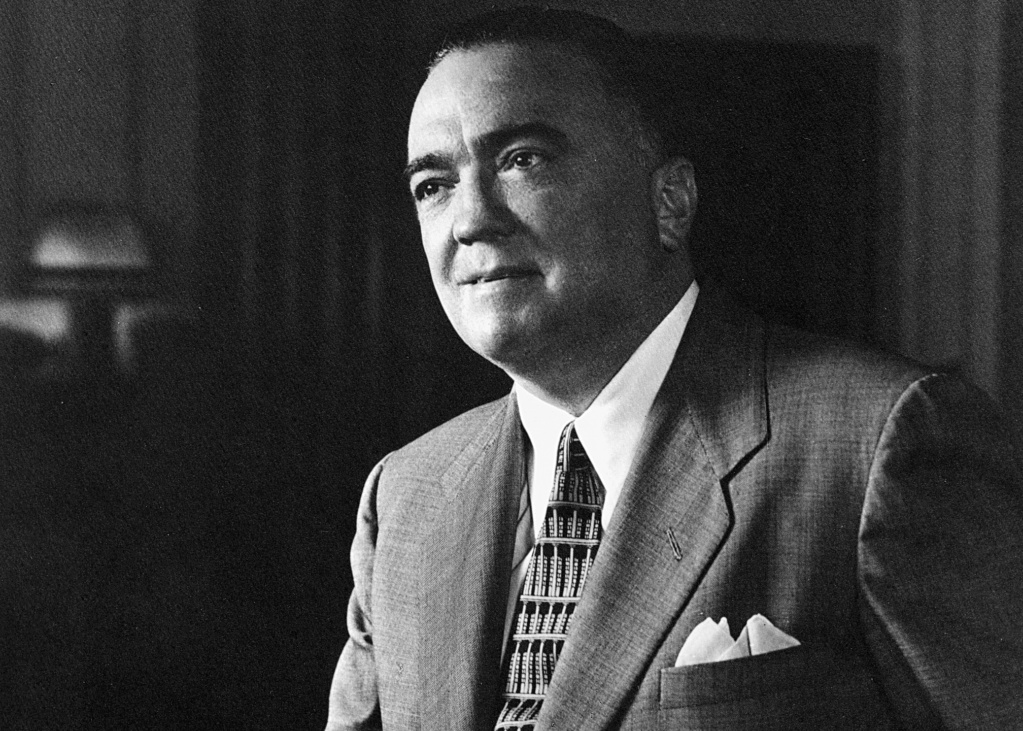ukron
Commander
"Beware of the French"
Posts: 1,433
Likes: 2,383
|
Post by ukron on Apr 24, 2024 12:30:39 GMT
Chapter 4: A big blow....in the water.On June 18, 1936, at 3:30 a.m., the first shots were fired in the "Palacio Nacional", the perpetrators being members of the conspiracy who had infiltrated the presidential guard. Their objective: to bring down the communist hydra by killing President Cárdenas, and to eliminate in one fell swoop the only serious obstacle to the establishment of a fascist dictatorship in Mexico, but as Napoleon so aptly put it: "There are only two kinds of campaign plans, the good and the bad. The good ones almost always fail through unforeseen circumstances, which often make the bad ones succeed". On that fateful day in June 36, the coup plotters had pulled the wrong card, for in addition to the imminent prospect of a coup d'état having been leaked by the president's men for at least several days, Cárdenas had put in place a plan to evacuate the key players in the Mexican presidential regime towards the United States, which would not fail to oppose the new Mexican junta. As the rebels advanced through the heart of the presidential palace towards the presidential apartments on the third floor (the third floor was a very recent construction, and the putschists didn't have all the plans), they were ambushed by a light machine gun, which, if legend is to be believed, was fired by El Presidente himself! 
Young Cárdenas (18) joined the constitutionalist army in 1913, and his courage and leadership, already noted at the time, enabled him to triumph over the short-lived Mexican fascist junta.The mutinous forces inside the presidential palace had to face the facts: they couldn't advance and fulfill their mission without reinforcements, the same reinforcements that were scattered all over Mexico City. For President Cárdenas and those close to him, this very small victory could unfortunately not reverse the advance of the fascists throughout the country, who had the support of the army and the big landowners; the only chance was to exfiltrate the courageous President to the United States and support a counter-revolution from abroad. At 5.30 a.m., after almost two hours of fighting, President Cárdenas and his entourage escaped from the third floor of the presidential palace (set on fire by the mutineers) using sheets tied together. They were picked up by an unmarked car and driven in extremis to Mexico City airport, where a Ford Trimotor awaited them, bound for Los Angeles.  Mexico City's Presidential Palace in 2013, burnt down in 1936 and partially rebuilt under the direction of German architect Leonhard Gall (1884-1952) in 1938, the Palace was not finally completed (and purged of its völkisch/neo-Aztek style) until 1948. Mexico City's Presidential Palace in 2013, burnt down in 1936 and partially rebuilt under the direction of German architect Leonhard Gall (1884-1952) in 1938, the Palace was not finally completed (and purged of its völkisch/neo-Aztek style) until 1948. President Cárdenas, nicknamed "El Machete" (the machete) in his famous speech on June 21, 1936 at the KNX in Los Angeles, calling on Mexicans to resist. President Cárdenas, nicknamed "El Machete" (the machete) in his famous speech on June 21, 1936 at the KNX in Los Angeles, calling on Mexicans to resist.Throughout Mexico, a brutal civil war began between supporters of the democratic regime, communists and indigenous rebels against the new military junta. But here again, the balance of power was unequal, with the better-equipped and more numerous rebels rapidly gaining the upper hand, and on September 15, 1936, the last pocket of resistance in Durango province was destroyed: Mexico was in the hands of the Cedillo-Abascal-Guizar triarchy.  Unleashed in July 1936, the Spanish Civil War largely overshadowed the second Mexican Civil War and its repression. Unleashed in July 1936, the Spanish Civil War largely overshadowed the second Mexican Civil War and its repression.But if the putschists had struck a blow in the water, they would accidentally be the trigger for another blow, which would upset the balance of power.....  Incumbent President Roosevelt's re-election in November is looking promising. Incumbent President Roosevelt's re-election in November is looking promising.
|
|
ukron
Commander
"Beware of the French"
Posts: 1,433
Likes: 2,383
|
Post by ukron on Oct 28, 2024 15:21:18 GMT
Chapter 5: The president's been shot!With this simple sentence, on the evening of August 16, 1936, the CBS announcer announced the unthinkable: on his way back from a presidential visit to Quebec, President Roosevelt, preparing for his November election campaign, had been the victim of an assassination attempt. Invited to New York's Madison Sqaure Garden to deliver an unscheduled speech on the dangers of fascist expansionism in Latin America, President Roosevelt was returning to the presidential car when a young man intercepted him and shot him point-blank with two 380 ACP bullets, one of which perforated the president's left lung. Taking advantage of the chaos generated by his attack, the assassin managed to escape, provoking a manhunt that would last several hours across New York. At 9:32 p.m., the victim of this heinous attack, President Roosevelt was immediately transferred to Bellevue Hospital, but a series of unfortunate circumstances in the form of traffic jams and a road accident between the intersections of Second Avenue and 34th Street delayed the emergency admission of the President of the United States, victim of a total lung collapse. Admitted only at 10:10 p.m. and weakened by his polio, FDR died at 10:24 p.m. on August 16, 1936.  Shock and awe around the world after the assassination of President Roosevelt (disregard the 1945 date, if I were any good with photoshop, I'd know). The assassin, named Joseph “Joe” Black, was a 26-year-old American of German origin and a militant of the German-American Bund, an association campaigning for closer ties between the USA and Nazi Germany. Radicalized by the recent coup d'état in Mexico, Black is convinced that the Bund militants can only seize power through violence and the elimination of the “Judeo-Communist” president, with “the Jews and the Bolshevik métèques” controlling the levers of power and therefore the elections; it is not yet known whether Black's action was remote-controlled from Berlin or whether it was a “lone wolf” type action perpetuated by a young man known for his psychiatric disorders. It is still very difficult to know the motives behind FDR's assassination, given that Jospeh Black was scheduled to die on the same evening as his victim: Taking refuge in the AMC cinema on 19th Street, Black had no idea that he had been recognized by Jacques Rubi, the cinema's owner. In his statement to the police, Rubi said he had had his doubts about this agitated man whose clothes were stained with water and mud. Turning on his radio at 10:41 p.m. (just before the end of the evening show), he learned of President Roosevelt's death, and Rubi quickly drew a parallel by confronting Black. Rubi accuses Black of being the president's assassin and orders him to stop, which the assassin refuses before opening fire on Rubi and missing. Moved by the accusations, a large crowd gathers around Rubi and Black, but disperses when the first shots are fired, so it's unclear what actually happens between 22:48 and 22:52 (when the NYPD patrol arrives), but it's clear that Black suffers several blows to the head from an iron bar. Black was taken to the nearest hospital, but died of a cerebral hemorrhage at 23:24, exactly one hour after his victim. 
Fritz Kuhn (center) and Bund members, Black is visible (5th man from left)/ May 1936.
For those wondering, as the game kept electing the highly unlikely Alf Landon, I had to find an excuse to release FDR as early as 1936 (I could have imagined some kind of nasty flu contracted in Quebec, but the assassination by a Nazi sympathizer of FDR allows me to have America declaring war on Nazi Germany at the end of 40 rather than in December 41).
|
|
stevep
Fleet admiral
Posts: 24,832 
Likes: 13,222
|
Post by stevep on Oct 28, 2024 23:36:13 GMT
Chapter 5: The president's been shot!With this simple sentence, on the evening of August 16, 1936, the CBS announcer announced the unthinkable: on his way back from a presidential visit to Quebec, President Roosevelt, preparing for his November election campaign, had been the victim of an assassination attempt. Invited to New York's Madison Sqaure Garden to deliver an unscheduled speech on the dangers of fascist expansionism in Latin America, President Roosevelt was returning to the presidential car when a young man intercepted him and shot him point-blank with two 380 ACP bullets, one of which perforated the president's left lung. Taking advantage of the chaos generated by his attack, the assassin managed to escape, provoking a manhunt that would last several hours across New York. At 9:32 p.m., the victim of this heinous attack, President Roosevelt was immediately transferred to Bellevue Hospital, but a series of unfortunate circumstances in the form of traffic jams and a road accident between the intersections of Second Avenue and 34th Street delayed the emergency admission of the President of the United States, victim of a total lung collapse. Admitted only at 10:10 p.m. and weakened by his polio, FDR died at 10:24 p.m. on August 16, 1936.  Shock and awe around the world after the assassination of President Roosevelt (disregard the 1945 date, if I were any good with photoshop, I'd know). The assassin, named Joseph “Joe” Black, was a 26-year-old American of German origin and a militant of the German-American Bund, an association campaigning for closer ties between the USA and Nazi Germany. Radicalized by the recent coup d'état in Mexico, Black is convinced that the Bund militants can only seize power through violence and the elimination of the “Judeo-Communist” president, with “the Jews and the Bolshevik métèques” controlling the levers of power and therefore the elections; it is not yet known whether Black's action was remote-controlled from Berlin or whether it was a “lone wolf” type action perpetuated by a young man known for his psychiatric disorders. It is still very difficult to know the motives behind FDR's assassination, given that Jospeh Black was scheduled to die on the same evening as his victim: Taking refuge in the AMC cinema on 19th Street, Black had no idea that he had been recognized by Jacques Rubi, the cinema's owner. In his statement to the police, Rubi said he had had his doubts about this agitated man whose clothes were stained with water and mud. Turning on his radio at 10:41 p.m. (just before the end of the evening show), he learned of President Roosevelt's death, and Rubi quickly drew a parallel by confronting Black. Rubi accuses Black of being the president's assassin and orders him to stop, which the assassin refuses before opening fire on Rubi and missing. Moved by the accusations, a large crowd gathers around Rubi and Black, but disperses when the first shots are fired, so it's unclear what actually happens between 22:48 and 22:52 (when the NYPD patrol arrives), but it's clear that Black suffers several blows to the head from an iron bar. Black was taken to the nearest hospital, but died of a cerebral hemorrhage at 23:24, exactly one hour after his victim. 
Fritz Kuhn (center) and Bund members, Black is visible (5th man from left)/ May 1936.
For those wondering, as the game kept electing the highly unlikely Alf Landon, I had to find an excuse to release FDR as early as 1936 (I could have imagined some kind of nasty flu contracted in Quebec, but the assassination by a Nazi sympathizer of FDR allows me to have America declaring war on Nazi Germany at the end of 40 rather than in December 41).
Well that's going to have some impacts. Along with a strong fascist type movement in Mexico I think the US is going to be a lot less isolationist and more interventionists here. I think as important as an earlier US dow - although if the early parts in Asia and Europe go as OTL Dec 40 seems an odd time - is what sort of state is the US military and economy in? If its no more developed than OTL then other than in naval terms it can't really add a lot to things but if events means its tooled up earlier it would have a potentially big impact. Also wonder how that would affect things in the Pacific. Unlikely you would have a US Fleet at Pearl and if it was that it would be caught as unprepared.
One question, talking of assassinations in the US does Hewy Long still die as OTL? If he's still about and he nearly survived OTL that would add another complication to everything, especially in a Democrat party in turmoil.
|
|
ukron
Commander
"Beware of the French"
Posts: 1,433
Likes: 2,383
|
Post by ukron on Oct 29, 2024 9:53:56 GMT
Thank you very much for your reply.
So yes Huey Long dies like OTL, but if we follow the most likely historical trajectory it is certain that the Democrats will succeed in maintaining power even after FDR's death, which I didn't really want.
Here, it's a moderate Republican administration that will poach the vast majority of Roosevelt's Brain Trust, which will manage America at War with massive rearmament from 1937 (the Panay incident will have the effect of a mini Pearl Harbor, even if it won't lead to war in the Pacific).
As for the war in the Pacific, the first thing to expect was a US Navy war in the Atlantic against German submarine forces, starting in late 1940.
|
|
stevep
Fleet admiral
Posts: 24,832 
Likes: 13,222
|
Post by stevep on Oct 29, 2024 11:50:14 GMT
Thank you very much for your reply. So yes Huey Long dies like OTL, but if we follow the most likely historical trajectory it is certain that the Democrats will succeed in maintaining power even after FDR's death, which I didn't really want. Here, it's a moderate Republican administration that will poach the vast majority of Roosevelt's Brain Trust, which will manage America at War with massive rearmament from 1937 (the Panay incident will have the effect of a mini Pearl Harbor, even if it won't lead to war in the Pacific). As for the war in the Pacific, the first thing to expect was a US Navy war in the Atlantic against German submarine forces, starting in late 1940.
Interesting as the Republicans generally tended to be the home of the more isolationist types in OTL 30's so wasn't expecting a markedly faster rearmament - although it would speed recovery from the depression. Anyway thanks for the info.
|
|
|
|
Post by Max Sinister on Oct 30, 2024 4:01:19 GMT
Interesting to see this Mexico-centered TL.
Is it true that Cardenas was called "El Machete" IOTL? Or Cedillo "Mexican Göring"? I googled the latter phrase, but only found your TL as a result. If it's true, I'd like to mention it elsewhere.
|
|
ukron
Commander
"Beware of the French"
Posts: 1,433
Likes: 2,383
|
Post by ukron on Nov 2, 2024 19:58:55 GMT
So no, it's a fiction I made up.
Machete is the name of a Mexican superhero played by Danny Trejo in a series of films of the same name, in which he uses his machete to fight dangerous narco-traffickers and arms dealers.
The Mexican Goering is justified by the fact that Cedillo was an aviation enthusiast, and OTL claims that the death of his daughter in a plane crash played a role in his withdrawal from political life, but I think this is just a rumor.
|
|
|
|
Post by Max Sinister on Nov 2, 2024 21:29:01 GMT
So no, it's a fiction I made up. Machete is the name of a Mexican superhero played by Danny Trejo in a series of films of the same name, in which he uses his machete to fight dangerous narco-traffickers and arms dealers. The Mexican Goering is justified by the fact that Cedillo was an aviation enthusiast, and OTL claims that the death of his daughter in a plane crash played a role in his withdrawal from political life, but I think this is just a rumor. Yeah, I've seen that movie too. Thanks for clarifying. But yes, it'd fit Cedillo.
|
|
ukron
Commander
"Beware of the French"
Posts: 1,433
Likes: 2,383
|
Post by ukron on Nov 18, 2024 16:05:32 GMT
Chapter 6: A story of winners and losers.The cowardly assassination of FDR by Nazi sympathizer Joseph Joe Black propelled America into the unknown. While Mexico City rejoiced at the elimination of the Marxist gringo Roosevelt and dreamed of retaking Texas, the situation was quite different in Washington, where the unpopular Vice President John Nance Garner found himself at the head of both the presidency and the Democratic nomination: Garner represented a movement that today might be described as conservative, given his opposition to Roosevelt's economic reforms, and the two men despised each other “cordially”.  John Nance Garner, 33rd President of the United States. His relationship with FDR he described as “not worth a bucket of warm piss”. John Nance Garner, 33rd President of the United States. His relationship with FDR he described as “not worth a bucket of warm piss”.
His opposition to the New Deal and his unpopularity cost him the surprising election of '36.The Republican opposition had been somewhat sterilized by the charisma of the 32nd president, and could only agree on the very uncharismatic Alf Landon, ex-governor of Kansas and ironically a fervent admirer of FDR. The former oil industrialist may have represented a liberal wing of the Republican party, but his campaign was doomed to disaster due to his inability to leave his native Kansas, earning him the unflattering nickname of “Dorothy” (a reference to Lyman Frank Baum's “The Wizard of Oz”). But August 16, 1936 had changed everything, as Alf Landon, distraught at the death of his opponent, gave a poignant radio interview in which he spoke of his attachment to the social programs of the “New Deal” and the importance of fighting foreign regimes that “deny our freedom and kill the best of our countrymen”.  Alf Landon, for the front page of Time in May 1936, the 34th president, though fiscally conservative, prepared a vast plan to support the American economy by giving massive backing to business, particularly the arms industry. Alf Landon, for the front page of Time in May 1936, the 34th president, though fiscally conservative, prepared a vast plan to support the American economy by giving massive backing to business, particularly the arms industry.
Although he could be criticized for his staunchly anti-union policies (in contrast to his Democratic role model), he was one of the first presidents to actively oppose segregation and racial discrimination.
He was joined by one of America's stars of the moment: Olympic champion Jesse Owens, medalist at the 36 Olympics, who gave him his support, as well as that of the African-American population.  Olympic champion Jesse Owens contributed to Landon's surprise election in November 1936. He died on December 16, 1942 during the Third Battle of Kozani with the 93rd Infantry Division. Olympic champion Jesse Owens contributed to Landon's surprise election in November 1936. He died on December 16, 1942 during the Third Battle of Kozani with the 93rd Infantry Division. Frank Knox, Vice President of the United States and (not so) eminence grise. In addition to canvassing the bulk of Roosevelt's “Brain Trust” for the Republican camp, he was also responsible for the progressive rearmament of the USN and US Army in preparation for a world war.  In December 1936, William J. Donovan, a personal friend of FDR's and a Republican, obtained the creation of a foreign intelligence service, the OSS (Office of Strategic Service), whose first active project was the Tropic Thunder operation.  If Edgar Hoover is accused by some conspiracy theorists of having been involved in FDR's assassination, the Republican administration will not hold it against him, but it will withdraw from the FBI all prerogatives regarding clandestine operations in Latin America.”
|
|
stevep
Fleet admiral
Posts: 24,832 
Likes: 13,222
|
Post by stevep on Nov 19, 2024 0:00:04 GMT
Sad to hear of the early death of Jessie Owen and interesting to see a Republican carrying on Roosevelt's policies, despite the bulk of the party being against them at that time.
|
|






















